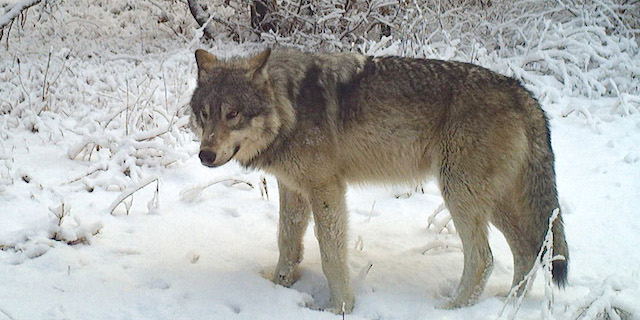Private Treaty February 2025
Pacific Cattle Angus, Sim-Angus, and Simmental range-raised production fall bulls available by PRIVATE TREATY FEBRUARY 2025 Carl Wisse • carl@pacificcattle.com www.pacificcattle.com • 509-539-6850 • Eltopia, WA
Published 12:03 pm Thursday, February 20, 2025

Livestock losses due to wolves, bears and mountain lions are the focus of the proposed Idaho Depredating Wildlife Appeals Board.
The board, which Senate Bill 1012 aims to create, would hear from ranchers whose losses investigated by USDA Wildlife Services did not qualify for compensation.
More livestock deaths are caused by large predators than initial investigation results indicate, supporters said at a Senate Resources and Environment Committee hearing. The committee voted to send the bill to the full Senate with a do-pass recommendation.
Federal grant money is available for depredation claims. The Idaho legislature in 2024 made state money available.
Wildlife Services staff generally only observe a livestock animal’s body, according to the SB 1012 purpose statement. An investigation could confirm that the animal was killed by a large predator or that the death was probably or possibly the result of predation. An investigation also may conclude that the cause of death is unknown.
Challenges include that a livestock carcass could be scavenged by the time the rancher discovers the loss and Wildlife Services investigates it, and that many cattle remain intact following a depredation, ranchers said.
“Over 80% of these are intact, which is what makes it very difficult for a lot of producers to understand that they are losing cattle to wolf depredations,” said Cascade rancher Phil Davis, who has had over 80 confirmed depredations since 1995.
His ranch in the past two years-plus reported losses that probably should have qualified for compensation but did not, he said. “Not only are we not getting confirmed where we can get depredation payments, but also it’s skewing the numbers with Fish and Game.”
“Confirmed depredation is also a statistic to determine control of wildlife throughout the state,” according to the SB 1012 purpose statement. “In its current form, once this single federal investigator makes a determination, that is the end of it.”
Compensation from federal grants is available for confirmed depredation, and compensation from state funding is available for losses deemed confirmed or probable, according to the statement.
Separately, House Bill 82 would make some state money available for losses deemed possibly caused by wolves or grizzly bears depending on claim volume in a given year.
The appeals board would comprise the director of the State Department of Agriculture or the director’s authorized designee, the Fish and Game director or a designee, and a large animal veterinarian appointed by the governor.
The state Office of Species Conservation would receive appeal requests from appellants and coordinate meetings with the board, which “shall consider all forms of evidence submitted by the appellant related to the depredation event,” according to the bill text.
Evidence to be considered would include testimony from the livestock owner, the initial investigator and eyewitnesses; telemetry data, photos and video, trapping and hunting reports from the past six months, previous depredation incidents in the area, and expert analysis.
“This reconsideration would also assist the state in determining where control efforts should be prioritized,” according to the purpose statement.